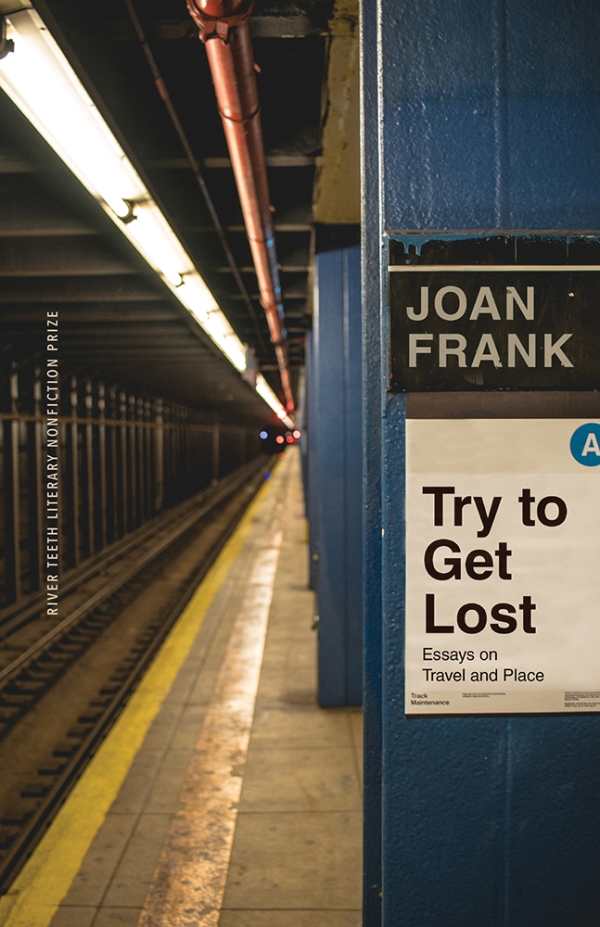Try to Get Lost
Essays on Travel and Place
Admit it: moving heavy bags and exhausted bodies through airport hallways, jostled by crowds of other harried, vacant-eyed travelers, is not fun. And these days, even budget travel is expensive and questionable. So why go? The essays in Joan Frank’s Try to Get Lost tackle this question as they bridge the gap between glossy brochures and the realities of the trip.
Focused on places whose ancientness, beauty, or poverty is staggering, these essays show how places can enrapture their visitors, flaws aside. Even conceding its snobbery and provincialism, racial strife, and dirty sidewalks, France wins Frank’s allegiance because of its careful attention to wine and food, its excellent health care, and its witty, courteous people who always seem to find nice things to do and nice ways to be.
Frank’s years of experience give her book a mature, sophisticated tone, even when it’s recalling the wonder of her days as a starry-eyed, fearless young traveler who, in her bones, felt immortal. Her essays are spiced with wry humor that skewers travelers’ illusions with examples of how “a traveler’s suffering starts after shutting the front door.” Mocking even the best-laid plans, Frank writes, “We travel expecting something. What we get is something else.”
Despite the ways that travel “beats us up,” Frank affirms that it provides the most passionate, permanent, and life-changing education available. “As a writer, a shiver still zings my spine when I spot the word ‘hotel,’” she writes. Along with revealing the workings of a curious writer’s mind, the book highlights the deeper questions lurking behind the travel urge: “Where should we be? Why?”
Whether sparkling with enthusiasm or turning downright curmudgeonly, the essays of Try to Get Lost record the ups and downs of travel with wit, insight, and unfailing honesty.
Reviewed by
Kristine Morris
Disclosure: This article is not an endorsement, but a review. The publisher of this book provided free copies of the book to have their book reviewed by a professional reviewer. No fee was paid by the publisher for this review. Foreword Reviews only recommends books that we love. Foreword Magazine, Inc. is disclosing this in accordance with the Federal Trade Commission’s 16 CFR, Part 255.

